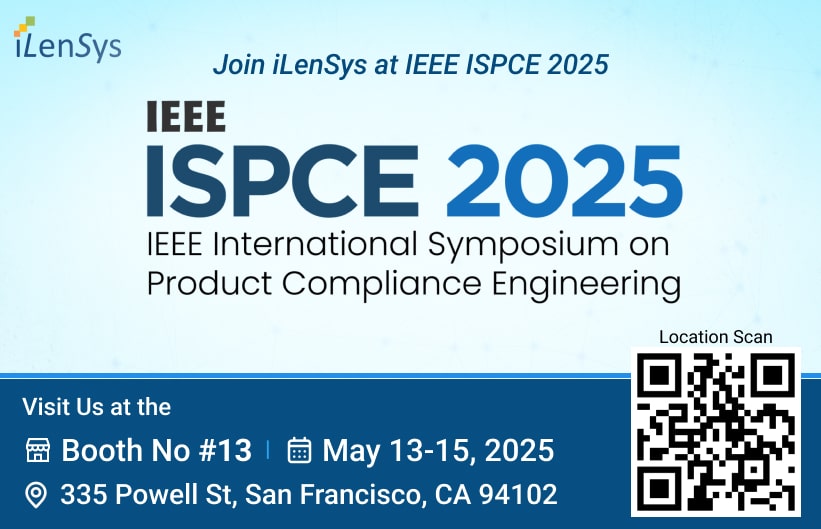Biocides play a significant role in our everyday lives. From ensuring hygiene to controlling pests or microbes, biocidal products are extensively used in our day-to-day lives. They play a crucial role in preventing the spread of diseases in different settings including industrial, agricultural, and domestic settings.
What are Biocides?
The European Chemicals Agency (ECHA) defines biocide as any substance or preparation containing active substances intended to destroy, deter, render harmless, or exert a controlling effect on any harmful microorganisms. They may be chemical substances, mixtures, or microorganisms.
Under EU regulations, biocides are classified into 4 main product types:
Biocide Resistance: A Growing Concern
Biocides have numerous benefits for society and play a crucial role in controlling bacterial infection. These invaluable resources are used extensively and need to be protected from loss of activity over time. Hence, biocides must be prudently used to preserve their current role in controlling infection, maintaining hygiene, and preventing the emergence of bacterial- and cross-resistance. Scientific research does indicate that using specific active substances in biocidal products may contribute to the growth of antibiotic-resistant bacteria. Some mechanisms of resistance are common to both biocides and antibiotics.
Their widespread usage over the years combined with their potent biological activity has necessitated the implementation of regulations to evade adverse effects on human health and the environment.
Biocides Regulation
The three main governing bodies for biocide regulation include the United States Environmental Protection Agency (EPA), the European Chemicals Agency (ECHA)’s Biocidal Products Regulation (BPR), and the World Health Organization.
The EU: Biocidal Products Regulation (BPR)
Under the Biocidal Products Regulation (BPR, Regulation (EU) 528/2012) directive, ECHA aims to harmonize the functioning of the biocidal products market in the EU and ensure optimum protection for humans and the environment.
All active substances present in the biocidal products must be approved and all biocidal products have to be authorized before they can be allowed in the market. Exceptions to this principle exist. For instance, biocidal products containing active substances under review in the Review Program may be marketed and used (subject to national laws) before the final approval decision on the active substance, and for up to 3 years thereafter. Similarly, products with new active substances undergoing assessment may receive provisional authorization to enter the market.
ECHA’s New Biocide Framework
On 17 May 2024, ECHA announced an expedited process for biocide consultations. This joint third-party initiative enables all stakeholders to provide comprehensive information in a single consultation. The information includes providing alternatives to biocidal active substances identified as candidates for substitution, their effect on society, and justification for any derogations if necessary. This data is essential for a comparative analysis while approving the biocidal products containing these active ingredients.
Assessment and Approval of Active Substances
Before a biocidal product can be authorized, its active substances need to be approved. Initially, an evaluating Member State competent authority assesses the active substances. The evaluation results are then forwarded to ECHA's Biocidal Products Committee, which prepares an opinion within 270 days. This opinion forms the foundation for the approval decision, ultimately adopted by the European Commission. Approval for an active substance is typically granted for a specified duration, up to a maximum of 10 years, and is subject to renewal.
BPR incorporates formal exclusion and substitution criteria to govern the assessment of active substances.
Exclusion Criteria
Biocidal active substances that meet the exclusion criteria will not be approved if they are found to be:
Exceptions can be made, especially when an active substance is deemed necessary for reasons of public health or public interest and no alternatives are available. In such cases, approval may be granted for a maximum period of five years.
Derogation Criteria
This step is vital when assessing active substances that are identified as candidates for substitution. If the active substance is determined to be highly hazardous by the national authority and meets the criteria for exclusion under the BPR, the consultation will seek more information and evaluate further if derogation can be justified for specific uses. This joint approach ensures that the national authorities and BPR committee have substantial data for informed decision-making processes.
Substitution Criteria
An active substance needs to be identified for any hazardous properties to the environment and human health. The aim is to gradually restrict or completely ban the usage of such chemicals and substitute them with more suitable alternatives. A substance may qualify for substitution depending on the following criteria:
Active substances designated as candidates for substitution face limitations in approval duration: up to seven years, even upon renewal; and five years if they meet any exclusion criteria. Products containing such substances undergo comparative assessments during authorization to ensure no superior alternatives exist. Harmonized classification aids in determining substitution candidacy, with the ECHA aiming to enhance collaboration between the Biocidal Products Committee (BPC) and the Risk Assessment Committee (RAC).
The US: The Environmental Protection Agency (EPA)’s Regulatory Strategy on Biocides
In the United States, the EPA oversees the approval and regulation of biocides through the Federal Insecticide, Fungicide, and Rodenticide Act (FIFRA), ensuring they are safe for use and properly labeled.
The EPA classifies biocides as substances that can eliminate (kill) living organisms. This category encompasses various toxic substances such as preservatives, insecticides, disinfectants, and pesticides, which are used to manage organisms detrimental to human or animal health, or that cause harm to natural or manufactured items. Although the definition is roughly similar to the one by the EU, the EPA includes plant protection products and some veterinary medicines.
Biocidal products undergo a thorough registration process mandating manufacturers to provide extensive details on ingredients, effectiveness, and safety. Once approved by the EPA, these products are permitted for sale and use across the United States. Products failing to meet the standards may face regulatory measures, potentially leading to their removal from the market.
Conclusion: Achieving a Harmonious Balance
Biocides unquestionably fulfill a critical role in controlling the transmission of infectious diseases. Their diligent application is indispensable for upholding stringent hygiene standards, averting foodborne illnesses, and safeguarding consumers globally. Nevertheless, the increasing reliance on biocides demands thoughtful reflection on their enduring effects on public health, the environment, and the development of microbial resistance. Looking ahead, a balanced strategy that emphasizes safety, sustainability, and innovation will be pivotal in tackling these issues and fostering a healthier future for everyone.
Reach Out to our iLensys Compliance Manager Team to understand how iLensys can be a reliable partner throughout your compliance journey.
Subscribe to our newsletter for regular updates.
Talk to ours Product Environmental Compliance Experts.
By submitting this form, I agree to receive emails about iLenSys's products and services as per the Terms of Use. I can unsubscribe at any time via the 'unsubscribe' link in iLenSys emails or by emailing contact@ilensys.com. I also agree to the Privacy Policy.
Sign up for the latest Blogs, Case studies, Whitepapers, Webinars and Videos.
- Blogs
- Case Studies
- News and Updates
- Videos
- Webinars
- White Papers
-
- Product Environmental Compliance
- Obsolescence Management
- Regulatory & Product Safety
-
-
-
-
-
-
- New Product Development
- Mechanical Design
- FEA Validation
- Benchmarking and Value Engineering
- 3D Scanning and Reverse Engineering
- 3D Printing
-
- Embedded Systems
-
- Industrial Automation
-
- Quality Assurance and Regulatory Affairs
-
- Extended Reality
- 3D Animation & Video Production
- WebGL Development
- Graphics and UI/UX Reality
-
- Technical Documentation
-
- Early Engineering Talent (EET)
-
-
-
- Lab Equipment
- Medical Devices and Equipment
-
- Scientific Instruments
-
- Life Sciences
-
- Static and Mobile Equipment
-
- Material Handling Equipment
-




